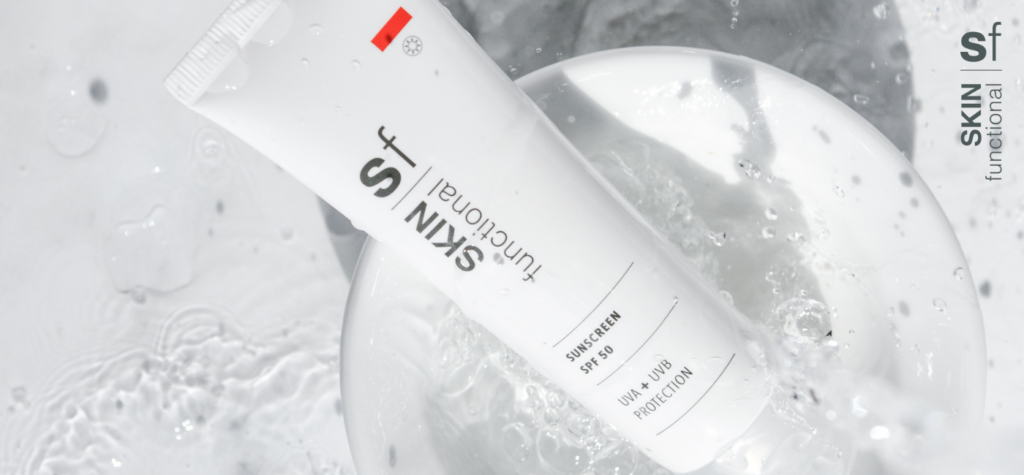
FREE SHIPPING FOR ORDERS OVER R500 WITHIN SOUTH AFRICA
Free shipping for orders over R500
FREE SHIPPING FOR ORDERS OVER R500 WITHIN SOUTH AFRICA
Free shipping for orders over R500

December 2021 – The damage the sun has on the skin has for many years been a topic of serious concern. According to the Centres for Disease Control and Prevention (CDC), skin cancer is the most common form of cancer in the United States. In May this year, CANSA reported that skin cancer is the most common cancer worldwide and South Africa has one of the highest monitored ultra violet (UV) levels in the world, resulting in one of the highest skin cancer rates globally.
According to the World Health Organisation (WHO), the incidence of both non-melanoma and melanoma skin cancers has been increasing over the past decades, and WHO estimates that a 10 % decrease in ozone levels will result in an additional 300 000 non-melanoma and 4 500 melanoma skin cancer cases globally.
“Skin cancer can develop due to overexposure to UV rays from the sun. Therefore, it is important that people protect themselves from UV rays. UV radiation is just as dangerous for outdoor labourers, sports people, on the playground or when driving to work, as it is when at the beach or pool. Rays can also reflect off surfaces and cause sunburn when it is overcast,” reported CANSA.
Choosing the right Sunscreen
More often than not people get confused between SPF and sunscreen. Kevin Khosa, Customer Service Manager at SKIN functional said: “SPF stands for Sun Protection Factor, a measure of how well sunscreen protects against UVB rays. SPF is a ratio of burn time, while sunscreen is the actual product. Experts recommend using a sunscreen with an SPF of at least 30.
When choosing the correct sunscreen, firstly make sure that it is a broad-spectrum sunscreen. What does this mean? “It needs to protect you from UVA and UVB rays. These filter together with an effective Anti-Oxidant to provide you with the highest level of protection is the best anti-ageing product you can use,” explained Khosa.
How and when to apply?
Your sunscreen (with an SPF of at least 30) should be applied about 15 to 20 minutes before you step outside or into the sun. If you are in full sun or perspiring, reapplication is essential as often as possible. If you are going to be swimming you will also need to check for indications that your sunscreen is waterproof.
If you are wondering at what step in you skincare routine does sunscreen fall into – it’s the last step. You need to apply 2g per square cm of skin. Research has shown that majority of consumers apply less than half of the amount required.
Quick Tip!
If having a white cast on your face is what is repelling you from using your sunscreen everyday and as often as possible – we are here to provide you with some insightful knowledge that will ensure sunscreen does not drive you away anymore.
“When purchasing a sunscreen for everyday use always read the ingredients. Zinc Oxide Titanium Dioxide or Iron Oxide are the white cast culprits. They are tiny particles in the cream which sit on the surface of the skin to help reflect UV radiation. If the sunscreen has this ingredient it will cause a white cast, so look for one without this ingredient. These ingredients are what we call mineral sunscreens. Very impotant to note that there are sunscreens that don’t have Zinc Oxide Titanium Dioxide or Iron Oxide in and still provide protection against UVA and UVB rays this is called a chemical sunscreen, one such product is the SKIN functional Sunscreen SPF 50,” added Khosa.
What you need to know
There is a lot of concern about chemical versus non chemical sunscreens. Used in the recommended dosages as outlined by the safety commission of the European Union, chemical sunscreens are considered safe in preventing sun damage and reducing the risk of skin cancer.
“Not only does using a sunscreen everyday reduce pre-mature ageing but it is also imperative in reducing your chances of getting skin cancer. While sunscreen needs to be applied every day all year round, as we enter into Summer where the South African sun is at its hottest, applying sunscreen is even more important. Remember to apply the right amount, as the last step in your morning skincare routine and use a broad-spectrum product that has an SPF of at least 30, and you’re good to go,” concluded Khosa.
We will give you the right amount of love!
From expert advice, specials and new products, be the first to know.
No spamming, we promise!






Click on the button below and choose 2 free gifts.
Hurry, while stocks last!